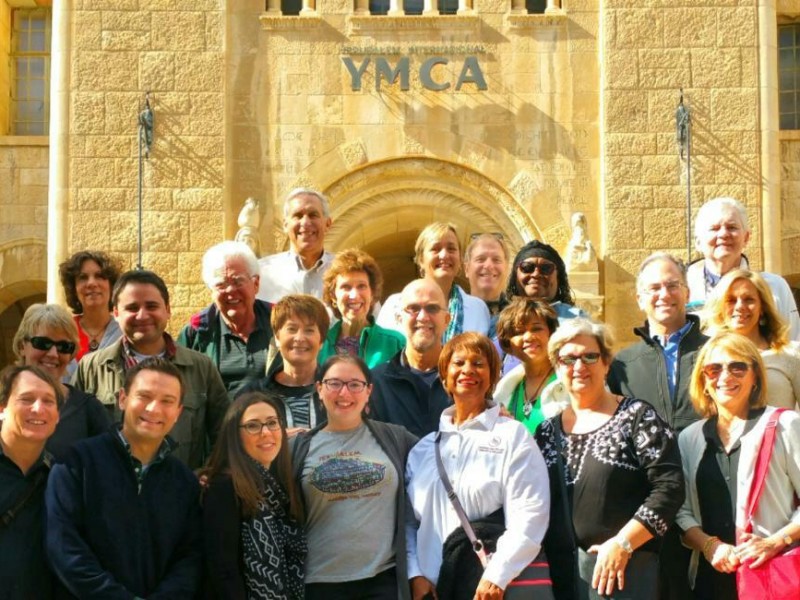Danielle V. Minson — Raising the Bar

Israel Exchanges Could Change Lives
Early in November, executives of Israeli companies spent three days in Cincinnati as guests of the Regional Economic Development Initiative (REDI). REDI’s goal was to create business connections, allowing Cincinnati to benefit from Israel’s culture of entrepreneurship while, in turn, allowing Israel to learn from Cincinnati’s branding expertise.
Last week, Cincinnatians were involved in another exchange with Israel, this time focused on how to change the lives of children living with poverty and trauma through early childhood education.
Twenty local senior civic and education leaders visited over a dozen creative, effective Israeli early education programs designed for poor Israeli children, Arab-Israeli children, and children living closest to the Gaza Strip. Our delegation included many key players in shaping Cincinnati’s early childhood policy, including Vice Mayor David Mann, Cincinnati Public Schools Superintendent Mary Ronan and United Way President Rob Reifsnyder.
We explained to our Israeli counterparts that virtually every major civic, social service and educational organization in Cincinnati has endorsed the United Way’s Bold Goals, and that one of those goals is for 85 percent of children to be kindergarten-ready so that they will be more likely to reading by third grade, graduate high school and find employment.
Israel is a good place to find innovative thinking about early childhood. One of Cincinnati’s first initiatives to help first-time, at-risk mothers—then called “Home Instruction for Parents of Preschool Youngsters (HIPPY)”—was originally developed in Israel. Also, Israel recently changed its national policy to make early childhood education available to every family regardless of financial capacity—an investment similar to Cincinnati’s proposed “Preschool Promise.”
We met with breakthrough thinkers like Dr. Tzipi Horowitz-Kraus, who just returned to Israel after her four-year Fulbright Fellowship at Cincinnati Children’s Hospital Medical Center. She explained how she co-founded CCHMC’s “Reading and Literacy Discovery Center,” which she will continue to guide from Israel in collaboration with CCHMC pediatricians. She also explained her work to demonstrate the power of reading by showing brain scans of children who have and have not learned to read.
After hearing how the Israel Trauma Center trains families and communities to be first responders for children traumatized by missile attacks, we immediately saw how this approach could be adapted for traumas faced by Cincinnati’s inner city children who are living amid ongoing violence.
At the start of the trip, most of our leaders had met but hardly knew each other. They returned as a tight-knit team of colleagues with a commitment to transforming the lives of Cincinnati’s children and deeply inspired by their Israeli counterparts, who are overcoming similar early childhood challenges despite a myriad of security, economic and other of daily threats.
The Success by 6 Exchange in Israel was coordinated and funded by a restricted endowment of the Jewish Federation of Cincinnati and the Jewish Foundation of Cincinnati. This is the second in a series of three guest columns about the exchange. Click here for the first, an article by David Mann.

